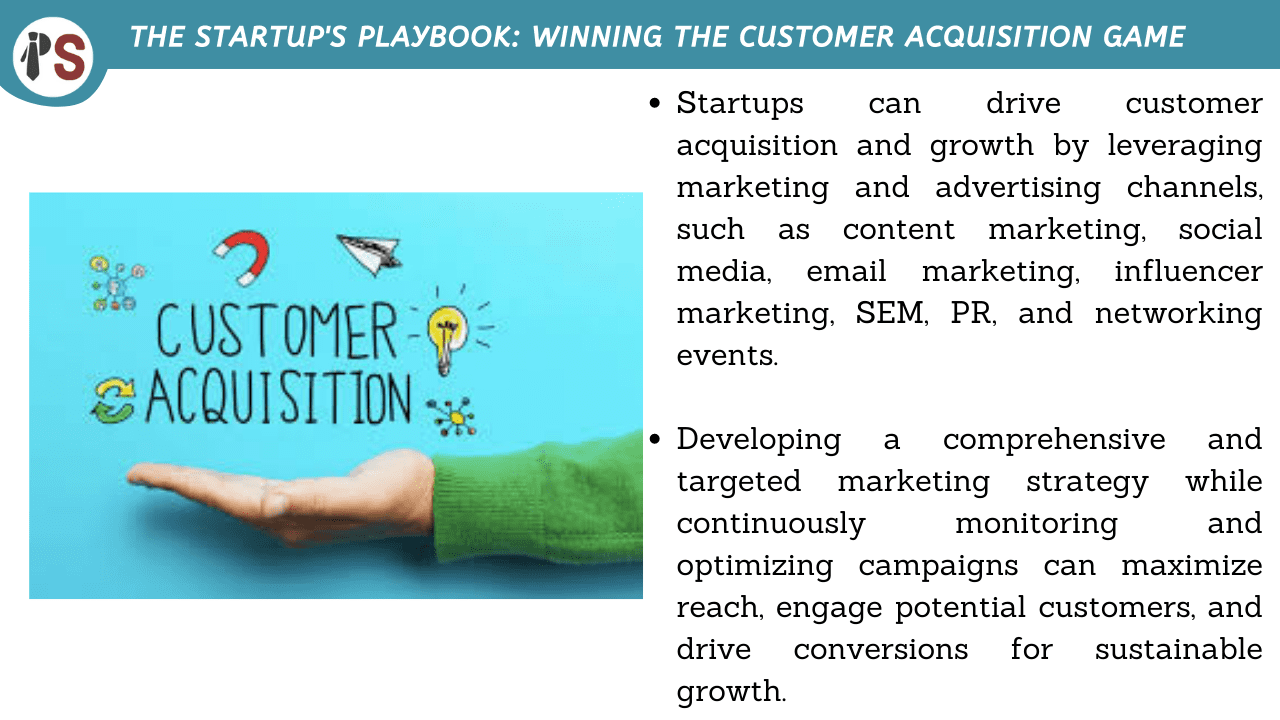
For startups, acquiring customers is critical to growing the business and building a solid foundation for future success. In the competitive landscape, startups need to leverage various marketing and advertising channels to attract, engage, and convert potential customers. This blog provides a detailed guide to the most effective marketing and advertising channels that startups can use to drive customer acquisition and foster business growth.
Content marketing involves creating and sharing valuable content, such as blog posts, articles, infographics, videos, and podcasts, to attract and engage a target audience. By providing useful and relevant content, startups can establish themselves as industry experts and build trust with potential customers.
Key strategies:
Develop a content marketing plan that aligns with your startup's goals and target audience.
Focus on creating high-quality, engaging, and shareable content that addresses your audience's needs and interests.
Optimize content for search engines (SEO) to increase organic traffic and visibility.
Social media platforms such as Facebook, Twitter, LinkedIn, Instagram, and Pinterest offer startups the opportunity to connect with their target audience, build brand awareness, and drive customer engagement.
Key strategies:
Choose the right social media platforms based on your target audience and business objectives.
Create a social media content plan, including a mix of promotional, educational, and engaging content.
Monitor and engage with your audience, respond to comments, and address customer inquiries promptly.
Email marketing is a cost-effective way for startups to nurture leads, engage with customers, and drive conversions.
Key strategies:
Build a quality email list by encouraging website visitors to subscribe to your newsletter or sign up for updates.
Develop personalized and targeted email campaigns to engage your audience and drive conversions.
Track and analyze email marketing performance to optimize future campaigns.
Collaborating with influencers, such as bloggers, YouTubers, or social media personalities, can help startups reach a wider audience and gain credibility.
Key strategies:
Identify influencers that align with your startup's brand and target audience.
Develop a mutually beneficial partnership, such as sponsored content or product reviews.
Monitor the performance of influencer campaigns and leverage user-generated content for your marketing efforts.
Search engine marketing (SEM) involves using paid advertising methods, such as Google Ads, to increase website visibility on search engine results pages (SERPs).
Key strategies:
Perform keyword research to identify relevant and high-traffic keywords for your startup's products or services.
Create targeted and well-structured ad campaigns to maximize ROI.
Monitor and optimize ad performance to improve campaign effectiveness and reduce costs.
Public relations (PR) helps startups build credibility and brand awareness by securing media coverage and fostering positive relationships with journalists, editors, and industry influencers.
Key strategies:
Develop a compelling story that highlights your startup's unique selling points and value proposition.
Create a targeted media list and pitch your story to relevant journalists and publications.
Leverage media coverage to enhance your startup's reputation and reach a wider audience.
Attending industry events, conferences, and trade shows can help startups build connections, generate leads, and showcase their products or services.
Key strategies:
Research and select relevant events that align with your startup's target audience and objectives.
Prepare a compelling elevator pitch and promotional materials to effectively showcase your startup.
Network with industry professionals, potential customers, and partners to expand your reach and gain valuable insights.
In conclusion, startups need to leverage a combination of marketing and advertising channels to effectively acquire customers and grow their business. By developing a comprehensive and targeted marketing strategy that incorporates content marketing, social media marketing, email marketing, influencer marketing, search engine marketing, public relations, and networking events, startups can maximize their reach, engage potential customers, and drive conversions.
It's essential for startups to continuously monitor and analyze the performance of their marketing and advertising efforts. By doing so, they can identify areas for improvement, optimize their campaigns, and allocate resources more efficiently to achieve the best results. With persistence, adaptability, and a customer-centric approach, startups can successfully navigate the competitive landscape and achieve sustainable growth.
At Professional Saathi, we offer a range of business consultancy services that help businesses improve their performance, achieve growth, and overcome challenges.
Copyright 2026 © Created By KTPG PROFESSIONAL SAATHI CORPORATE CONSULTANT PRIVATE LIMITED, All Rights Reserved.
Leave Your Comment